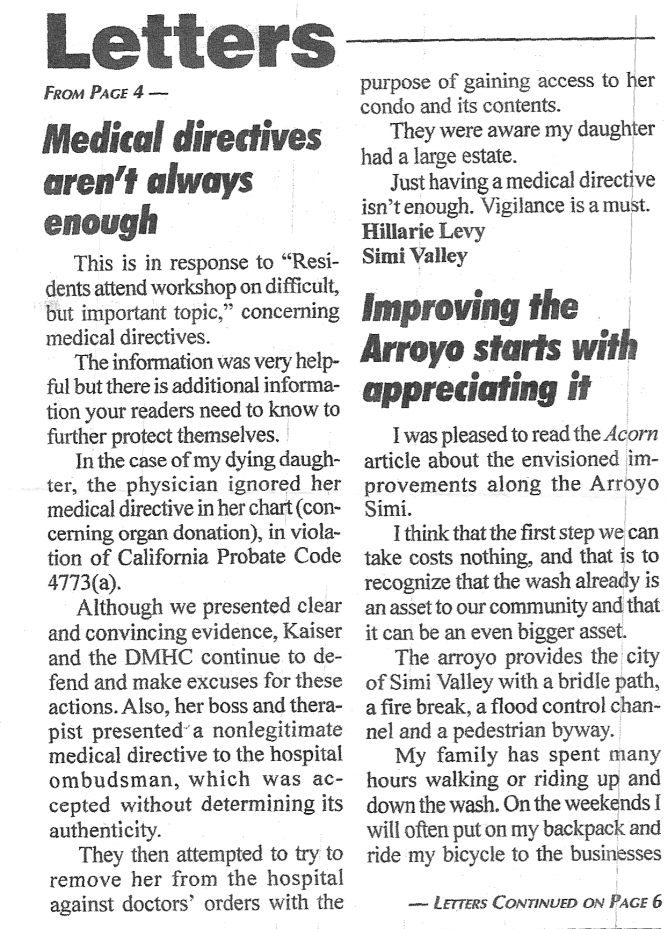 Help
for Kaiser
Permanente Patients on this public service web site.
Permission is
granted to mirror if credit to the source is given and the material is
not offered for sale.
PRIVACY
POLICY
| ABOUT
US |
CONTACT
|
WHY
THE KAISERPAPERS
|
Why the thistle is used
as a logo on these web pages
Help
for Kaiser
Permanente Patients on this public service web site.
Permission is
granted to mirror if credit to the source is given and the material is
not offered for sale.
PRIVACY
POLICY
| ABOUT
US |
CONTACT
|
WHY
THE KAISERPAPERS
|
Why the thistle is used
as a logo on these web pages
kaiserpapers.com/robynlibitsky
 Text
Version of the above Letter to the Acorn Newspaper
" Medical directives aren't always enough "
Text
Version of the above Letter to the Acorn Newspaper
" Medical directives aren't always enough "
This is in response to "Residents attend workshop on difficult, but important topic," concerning medical directives.
The information was very helpful but there is additional information your readers need to know to further protect themselves.
In the case of my dying daughter, the physician ignored her medical directive in her chart (concerning organ donation), in violation of California Probate Code 4773 (a). Correction as it should be California Probate Code 4733 (a) .
Although we presented clear and convincing evidence, Kaiser and the DMHC continue to defend and make excuses for these actions. Also, her boss and therapist presented a non legitimate medical directive to the hospital ombudsman, which was accepted without determining its authenticity.
They then attempted to try to remove her from the hospital against doctors' orders with the purpose of gaining access to her condo and its contents.
They were aware my daughter had a large estate.
Just having a medical directive isn't enough. Vigilance is a must.
Hillarie Levy Simi Valley
California Probate Code - 4733
4733. Except as provided in Sections 4734 and 4735, a health careprovider or health care institution providing care to a patient shalldo the following: (a) Comply with an individual health care instruction of thepatient and with a reasonable interpretation of that instruction madeby a person then authorized to make health care decisions for thepatient. (b) Comply with a health care decision for the patient made by aperson then authorized to make health care decisions for the patientto the same extent as if the decision had been made by the patientwhile having capacity.